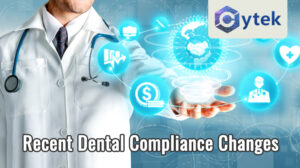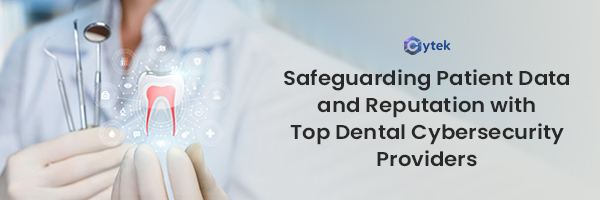Recent Dental Compliance Changes

The recent dental compliance changes account for changes in working practices and advances in technology. The changes in dental practice extend the scope and extent of the Health Insurance Portability and Accountability Act Health IT for the economic and clinical Health Act. To protect the integrity of electronically stored and transmitted protected Health Information (ePHI), the new HIPAA rule introduces three safeguards.
The Three Safeguard are:
Administrative Safeguard
This rule covers factors such as the assigning of an information security officer, business associate agreements, risk assessments, training, and the development of appropriate policies.
Physical Safeguard
This covers equipment specifications controls for device and media use to store ePHI, physical access to service, and hardware on which ePHI is stored.
Technical Safeguard
Issues related to who can access a database, on which ePHI is stored, audit controls, transmission security, and how to monitor the access and the communication of ePHI
If you have a storage issue with the requirements to save six years of ePHI or if you provide unfiltered internet access and to the covered entities that have implemented BYOD policies, these safeguards are of great significance.
Covered entities must implement systems that ensure the end to end security of patient data and should have a mechanism to prevent a data breach to comply with the recent HIPAA changes.
Data Breaches
Data breaches are also included among the new HIPAA rules. It defines what constitutes a data breach. When there has been unauthorized exposure of ePHI unless the healthcare organization, health insurance provider, employer data breaches can happen
One of the best solutions to avoid data breaches is encryptions. The encryption of data is one of the requirements of the HIPAA security rule. It means that it cannot be implemented if a covered entity shows that it is not necessary.
However, you can avoid data breaches by encrypting all personal identifiers and health-related data. This results in a low probability of data breaches.
To avoid OCR fines for failing to comply with the recent HIPAA changes you need to encrypt data in databases on the server, on the flash drive or it moves through the network.
Implementation of Encryption in Health Care
It is not much difficult to implement encryption in health care. To secure messaging many covered entities are switching their primary method of communications. Many covered entities have introduced BYOD policies.
Secure messaging compliments the BYOD policies and avoid the risk of a data breach through encrypted communications and by encapsulating within a private network.
Secure messaging complies with the recent HIPAA changes and also helps to provide an audit trial for ePHI.
Secure messaging also helps to foster collaboration and enhance productivity by improving the speed of diagnoses. It helps to accelerate the communication cycle.
Since the new HIPAA rules work introduced secure messaging resolves the issues of encryption in health care.
Human error has been the cause of breaches. Unencrypted laptop stolen, mislaying USB flash drivers, the improper disposal of ePHI have been the major cause of data breaches. Criminals are also targeting employees through phishing campaigns and malware downloads.
Implementation of web filters is one of the strongest defenses against cyber threats. With web filters, covered entities can prevent phishing attacks and malware downloads. This prevents cybercriminals to break covered entities’ cybersecurity defenses.
Web filters also help to increase productivity. As it restricts access to any websites, you can prevent the employee from social media channels, shopping portals, etc. It also eliminates HR issues and creates a user-friendly working environment.
Complying with HIPAA: Dental Compliance for Dental Office
Changes are not much difficult. It is not much time consuming, expensive, or resource-intensive. To know more about HIPAA compliance you can contact us. Cytek, we provide the right solutions to your practice and will help you to maintain compliance with confidence and ease. Dental Compliance for Dental Office is important to avoid penalties.

 ">
">
 ">
">